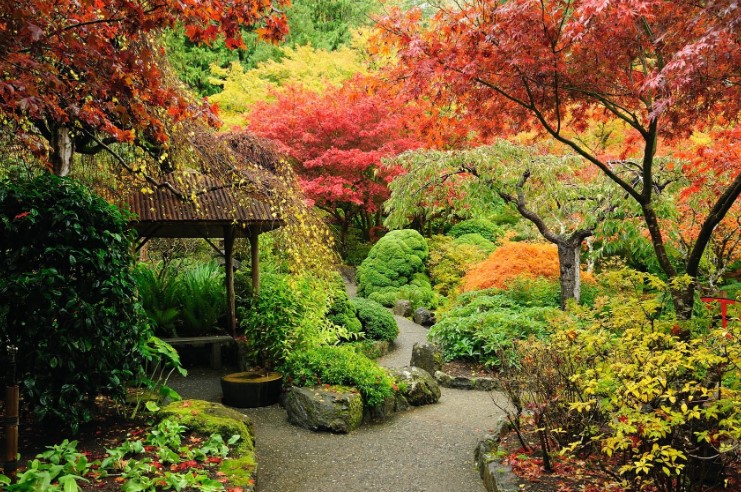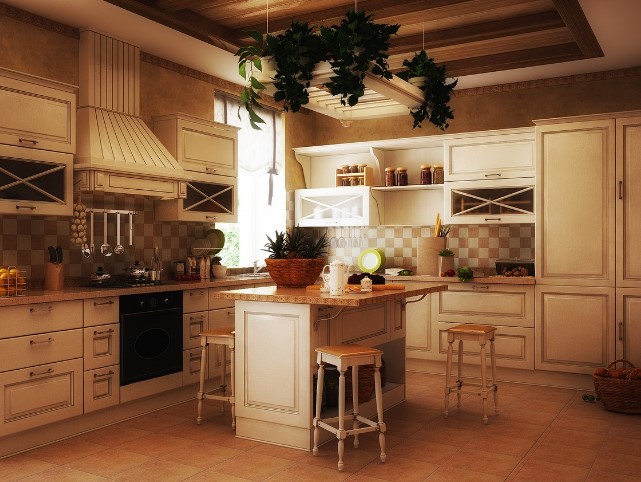For those who have made it a goal to take things more calmly, there are some faithful allies that cannot be missed: zen plants. In line with what Eastern philosophies promote, zen plants contribute to creating a space with good energy.
Due to the stress many people experience daily, having a tranquil and intimate space at home where they can escape is the best way to disconnect. The indoor Zen garden can assist us in this endeavour. They help us create that relaxing and peaceful atmosphere that, even unconsciously, will make our lives more tranquil, involving the mind and body in its contemplation.
It is said that Zen monks often meditate in this type of garden, as through its contemplation, they can reach the pinnacle of relaxation and clear their minds completely. Amazing, isn’t it?
What is a Zen Garden?
The Zen garden originates from Japan, where it is called Karensui, which means dry garden. As its name implies, it helps us relax while contemplating nature in all its splendour.
It is also important to know that the Zen garden carries strong symbolism that evokes both nature and the spirit, where order plays a very important, if not primary, role.
To unleash its full potential, you should have the natural elements that are part of this type of garden, like light-coloured sand or stones and arrange them in the most appropriate way to achieve relaxation and rid yourself of negative vibes. This is valid for outdoor Zen gardens, but you can use small stones in your indoor garden as well.
How to select your zen plants?
Choosing indoor plants should not be taken lightly if we don’t want the purpose they serve in bringing us peace to turn into stress. We need to consider the space where the plant will be placed. Temperature and lighting are two aspects that determine this choice. But we need to add one more: the attention we can give them. If we are aware that we have little time, we will have to opt for resilient species or call out professional gardeners. It’s the best way to ensure our plant survives and its presence doesn’t become a burden.
3 Zen plants for a low-light space:
Lucky Bamboo
Exotic, humble in appearance, and simple when it comes to care. Lucky bamboo is a root of Oriental origin that has captivated the Western world in recent years. And it’s considered a plant that attracts positive energy. In addition to being highly resistant, it can grow even in low-light conditions. It makes it a suitable indoor plant for bathrooms as well.
The only precaution we need to take in its cultivation is to maintain strict hygiene in the container where it is placed. Simply clean it thoroughly every time we change the water.
Pothos
Pothos is one of the most popular green plants in homes, and, interestingly, it is one of the perfect zen plants for anyone. We say this because Pothos is an example of resilience. Although it loves light, it can live without any issues in a low-light space. Caring for Pothos doesn’t involve any difficulties and only requires careful watering. Despite popular belief, this plant needs the substrate to dry between waterings.
It demands little for what it gives. It’s impossible not to surrender to its intensely green leaves with yellow touches.
Snake Plant (Sansevieria)
Its nickname says it all: the Snake Plant is also called the indestructible. And it gives us an idea of how resilient this tropical green plant is. Taking care of the Snake Plant is so simple that it seems unbelievable it can survive with so little. Despite being a lover of light, it thrives perfectly well in spaces with low illumination. And watering won’t be a concern either; sporadic watering is sufficient.
However, if we want this delightful zen plant to thrive appropriately, we need to ensure proper drainage. Its roots are susceptible to excess water.
3 Zen plants for a well-lit space.
Monstera
It is one of the most beautiful green plants that exist. In addition to the intense green of its leaves, its characteristic shape alone decorates any space. And not only that, but seeing it climb through our space will give us that sense of calm and tranquillity we seek when opting for zen plants.
Caring for the Monstera is not complicated, either. It is demanding when it comes to light, as it requires a lot of brightness. However, this should not be confused with direct sunlight, as it can burn its leaves. In addition, it does not require much watering but does need some humidity, especially in the summer months. Nothing beats misting its leaves and placing a separate tray with stones next to the pot for this time of the year. This way, the water won’t be in direct contact with the roots but will keep them appropriately moist.
Echeveria
One of the easiest zen plants to cultivate, making it perfect for beginners. It doesn’t require much watering but does need plenty of light. We don’t have to worry about its substrate either. As a plant native to desert climates, it doesn’t need nutrients like other plants might.
Furthermore, its variety of shapes and colours makes it impossible not to find the most suitable one to create the zen ambience we desire.
Bonsai
One of the most representative zen plants, not only because of its appearance. Caring for bonsai is unique and requires meticulousness, making it perfect for those who find gardening as an escape.
However, they are not suitable for gardening beginners or those who don’t have a suitable space for cultivating these trees. But let’s not deceive ourselves: growing a bonsai is a wonderful challenge for any plant lover.
3 must-have plants for а zen garden.
Bamboo
Bamboo represents flexibility and sincerity in a Zen garden because it can bend but won’t break. It’s pretty much found in every Zen garden.
It requires well-drained and fertile soil with a pH of 5.5-6.5, and when planted directly in the ground, it needs two waterings per week if there is no rainfall.
It requires plenty of light, but not necessarily direct sunlight.
Planting in a pot: It can be done, but make sure the pot size is adequate, as bamboo proliferates quickly.
Advice: To preserve its growth, it is advisable to put a protective layer at the base of the bamboo, such as leaves or mulch.
Japanese Maple
The Japanese maple does not require much care, mainly because it is a very resistant species. Our recommendations are to renew the top layer of the substrate, fertilise it in the spring, and wrap the specimen to protect it from the cold in the winter. Pruning lightly too.
Magnolia
It is a slow-growing plant that blooms in late spring or early summer. Its flowers are very popular because of their beauty.
Magnolia prefers a sunny location and well-drained acidic soil. Also, make sure it gets enough water, especially in the summer.
And it is better to use a fertiliser specifically formulated for acid-loving plants.
Harnessing the Power of Zen Gardens in Your Home
The Zen garden’s invisible power has a positive impact on the inhabitants of a household. For that reason, and because plants bring joy and beauty to our lives, including them in our own landscape can help us have a healthier environment in every aspect.

